Testimonials from Indonesia
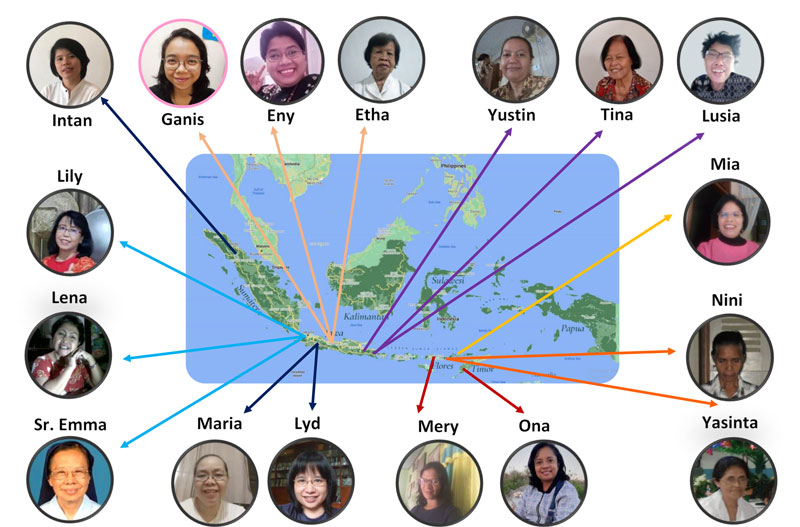
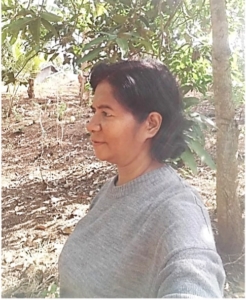 MARIA FATIMA (MERY)
MARIA FATIMA (MERY)
My ancestors came from a coastal area in central Flores, namely the Nagekeo region in Nangaroro, and we belong to the Tonggo tribe. In the past, war and the growth of the population forced us to move uphill to the mountains to cultivate land. Thanks to their hard work they could support their children and grandchildren to this day. Coconut, mango, papaya, cassava, banana and corn are planted on dry land depending on rainfall. We, like most of the population, work in agriculture. There is sufficient for us, for our cattle and poultry and even for sale. Although we are from different tribes, we can communicate well, because generally people are open and friendly, creating harmony in society.
I was born in a devout catholic family. My parents gave us a sound catholic education by living religious teachings based on the Scriptures as a guide for life. Our family started every new day with a prayer. Our house is near the church. Our spiritual life is nourished by the Eucharist and further deepened in our prayer meetings and bible sharing groups. God has gifted me with a good voice. Before the pandemic I was often asked to sing the Responsorial Psalm in Sunday Mass. I also teach young people to sing church songs. During our prayer meetings, people often ask me to lead the prayers. I feel that Chist’s presence among us strengthens our family bonds.
I am very grateful for everything God has given us: the land to cultivate, the trees and plants, cattle, and especially the people with whom I live and work. Of course, misunderstandings and conflicts are unavoidable. But Jesus teaches us to forgive. St. Angela teaches me to be kind and compassionate, to act purely out of love and zeal for souls.. (2nd Counsel, 1-2) I try to put this into practice and pass it on to those who come to me with problems in their married life, or other problems.
Technological development is a big advantage. We can learn new ways of farming and raising livestock. I invite people to work together using new, more profitable ways. But many older people find it difficult to change. They prefer to use traditional methods. This can lead to conflict with young people who have developed a new mentality using modern communication tools. But young people also need guidance in using those tools wisely. Often they are just wasting time using them as mere entertainment, for example playing games. Or they get wrong informations because of the many hoaxes circulating.
Another problem is poverty. Many people have lost their jobs in the city because of the pandemic. They return to the village and become day laborers working in other people’s fields. The global warming causes long periods of draught, so that we have nothing to harvest. Not many people can afford to buy smart phones. Moreover, the internet connection in our area is still very limited.
Living in this complex society as a Secular Ursuline, I draw my strength and inspiration from St. Angela. In guiding people, especially the young, I have experienced that I can “achieve more with kindness and gentleness than with harshness and sharp rebukes” (3rd Counsel, 3) In facing poverty and deprivation, I try to keep hope alive, as St. Angela said: “Have hope and firm faith in God, for He will help you in everything.” (Counsels, Prologue, 15)
I am glad that I am not struggling alone. There is Jesus, our and my Beloved, and my community, all my sisters in the Company of Indonesia and the Federation. I unite my prayers and efforts with them. The holy Spirit who lives in our hearts keeps us focussed on Jesus who strengens our faith to believe that, “God works in all things to bring good to those who love Him, that is, for those who are called according to God’s plan.” (Romans 8: 28).
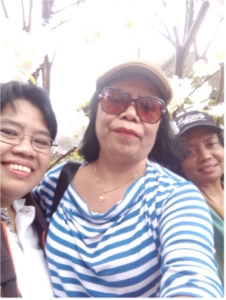 MIA
MIA
I was born and raised in Lembata, a small island east of Flores. For many years I was a teacher at an Ursuline school in Jakarta until my retirement a year ago. I have a house in Jakarta, quite far from the center of the city. I never imagined the situation would turn like this because of the pandemic. My mother and many other relatives live in Lembata. My mother will turn 101 years old this year. But she forbade me to go home to visit her. It is a very long way from Jakarta to Lembata. One has to take the plane to Kupang on the island of Timor, and from there take another plane to Lembata. So far there are no flights from Kupang to Lembata. My mother and relatives assure me that we can meet in prayer, heart and mind. Of course also by smart phone.
I thought that I could enjoy much quiet time during this retirement. But far from that. I am now much busier that ever. My day starts at 4 am with a shower and then morning prayer and Mass on line. Household chores take time and energy: cleaning and cooking. After breakfast I check my smart phone for messages. Every day I find greetings, good and bad news, requests for advise and counseling, invitations for meetings, webinars, meditations, conferences and courses on line, invitations for meetings, also on line sales. Sometimes there is too much to handle. The internet is the only way to contact my family, Sisters in the Company, ex-students and co-teachers. Some of our Sisters in the Company are difficult to contact, because they lack communication means or the skill to use them. I have volunteered to contact them, however difficult, and be a be a bridge between them and the Company.
So my days are really full. I am grateful for being able to serve others and give new hope to those who have lost all hope. This is because I know that Jesus and Mary and St. Angela are with me in this house and help me to become a blessing for others. These words of St. Angela strengthen me: “Have hope and firm faith in God, for He will help you in everything. Pray to Him, humble yourselves under his great power, because without doubt, as He has given you this charge, so He will give you also the strength to be able to carry it out, provided you do not fail for your part. Act, move, believe, strive, hope, cry out to him with all your heart…” (Counsels, Prologue, 15-17)
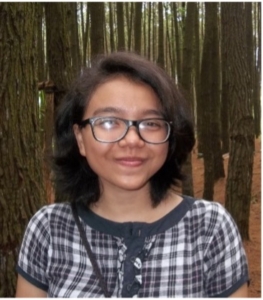 ANGELINA
ANGELINA
I was born and live in Ketanggi, a village near Rembang, a town on the north coast of Java. Rembang is known as the birthplace of our heroine, RA. Kartini. Rembang is also called the Town of Salt and Little China. “Town of Salt”, because most of the residents of Rembang work as salt farmers. “Little China” because in the city of Rembang there are many Chinese residents.
Rembang is also rich in natural resources. The ocean is a source of all kinds of fich. The fertile land is covered with rice fiels and green plants, giving a livelihood to fishermen and farmers. In Rembang one can also find a diversity of religions, cultures and customs. The majority of the population are Moslem, but there is tolerance among the adherents of different religions.
My mother’s family is Christian and my father’s family Catholic. Before marriage my mother became a Catholic. In the course of time, one of my relatives became a Moslem. Since November 2020, I am a candidate in the Company of St. Ursula Indonesia. I am personally inspired by the life of St. Angela. She had the courage to found the Company of St. Ursula which was quite new in her time: serving God in consecrated life, but not in the convent. I want to follow St. Angela who was a true spouse of Christ by proclaiming God’s love through life in society.
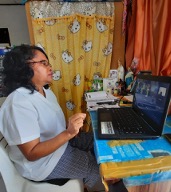 ONA
ONA
I live and work in Kupang, on the island of Timor, in the Province of Southeast Indonesia. The province consists of approximately 550 islands with three large islands, namely Flores, Sumba, West Timor. There are several sub-ethnicities with many different languages and customs. The island of Timor has many beautiful views of the sea and non-volcanic mountains. A very famous plant that grows here is sandalwood which is fragrant and very expensive. There are also many cows and poultry which are sold outside the region
The Timorese used to build their houses in places that are difficult to reach for self-protection, e.g. on the mountains, rocks, surrounded by thorns or stone walls. The traditional houses were designed like beehives with the roof reaching almost to the ground. Within each ethnic group there is a close relationship, marked by family gatherings to share joys and sorrows. This cooperation is very helpful to ease the burden of families who are in difficulties.
One of the biggest problems in Kupang is addiction to alcoholic beverages, not only among adults, but also among many young people. Often it results in commotion and violence against family members and the surrounding community. Many cultural drinking parties end in bloodshed due to drunkenness. As a result, houses were destroyed, thrown with stones, and divisions among the tribes because they felt offended by their attitude and words.
I am grateful to be blessed with a profound Catholic family. Since childhood, we have learned to be grateful in everyday life. Our family has the habit of praying together before going to bed. On Sundays the whole family goes to church together with my father and mother. My father was a teacher, so we were disciplined since childhood. We even made a schedule for studying and doing chores at home. So we were raised in a loving family. The brother-sister relationship has been planted in us by our dear father and mother who have guided us. Thank you father and mother who are now in heaven and always pray for us, your children, wherever we are.
Since childhood I dreamt to become a teacher like my father. As for me, being a teacher is both fun and challenging. I am currently a 6th grade teacher at the Kupang Archdiocesan school. It’s fun to each day meet those innocent children with various characters and personalities. It is also a challenge because apart from teaching knowledge and skills, I have to educate them by planting life values like love, care for others, responsibility, honesty, discipline and good manners.
I am also actively involved in other activities at school such as accepting new students, guiding and accompanying children to participate in Olympic competitions in Natural Sciences, Mathematics and Arts. Also in competitions at provincial level. During this pandemic, activities are carried out by using the internet network. The information and communication technology is very demanding. There are many obstacles too, because the internet network access is often disrupted.
Many children do not have devices like smart phones because they are poor. In that case the teacher prepares the teaching material and questions. Every 3 days the parents come to school to get them. Others send learning videos and some use zoom. People recognize me as a Secular Ursuline by my way of teaching, by treating students indiscriminately, by forgiving those who have done wrong, by reprimanding and giving advice kindly and gently, not harshly. This is what attracts parents most, and they compete with each other to have theirr children in my class, because there are other paralel classes. Thanks to St. Angela who is always close to my heart.
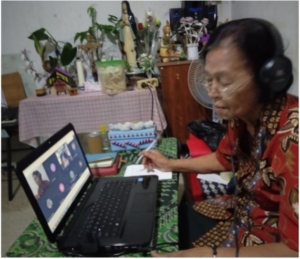 KRISTINA
KRISTINA
I was born and grew up in a Catholic family in Wates, a small town in Central Java. The majority of the population are Moslem, and so are many relatives of mine. But we are in good terms with each other.
Many years ago I left my native town to settle and work in Malang, a city in East Java. It is a quiet city with a cool climate. Formerly the Dutch who occupied our country till 1942, designed this city as a place for the retired. Malang is famous for its apples; they are green and a bit sour, good for apple pie. During this pandemic most people stay at home and do some gardening. Others keep their jobs and work from home using the internet. Still others make their living by selling food at the roadside.
I work in the rectory of the parish of “Maria Assumpta”. It has 2.637 parishioners and two priest. I try my best to serve them so they in turn can seve the people of God in the parish. Our parish is divided in five neighborhoods, each with a coordinator. The daily Mass is attended by about thirty people. There is Mass on Saturday evening, and four on Sunday, each attended by 30 people also, from the five neighborhoods. The attendees are strictly selected according to the health proce-dures. Others can attend Mass on line.
I am a very simple woman with little education. I am very much inspired by St. Angela who was also a simple woman. But she was very brave to found something quite new in her time: A Company of consecrated women living in the world as light and salt. I don’t know much about technology, but I try to learn. This way I can keep contact with my family and my Sisters in the Company. I have learned to use zoom for the monthly meeting of the Company. I am very happy that I can see and hear them, and chat with them during our zoom meeting.
We keep our hope alive, and pray together for the end of the pandemic. May all of us who are called to be the spouse of Christ have the courage to live consecrated life pleasing to our Lord in this difficult time.
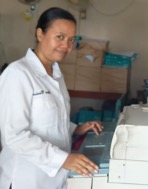 YUSTINA
YUSTINA
I live in Madiun, a city in East Java. During the dry season, fom May to October, the climate can be very hot. But during the rainy season it can be cool, sometimes even cold. The soil is fertile. There are many rice fields, and various kinds of fruit and flowers also grow here.
I was born into a devout Catholic family. My parents taught me from a young age to attend the Eucharist every day. No wonder the seeds of my vocation started to grow at a very young age. It was my dream from childhood to become an Ursuline nun. So after finishing high school, I entered as a candidate. But in the convent I was crying all the time.
Finally an Ursulin sister told me that the vocation of consecrated life is not only in the convent. She brought me into contact with a Secular Ursuline, namely Margaretha Siti Asiyah. From her I got to know the Company of St. Ursula, and applied for membership. I was very happy to have found the right place to live consecrated life outside the convent! My parents, brothers and sisters as well as my other relatives, are very supportive, so that I can live my vocation with great joy.
For the past ten years I have been working at the educational Institution of the Brothers of St. Aloysius Gonzaga (CSA). The Priests, Brothers and three religious Institutes: the Ursulines, MC Sisters and Alma Sisters work together in good harmony for the benefit of the people of God. The ones I know are also supportive of my vocation as a Secular Ursuline. I hope and pray our Company may grow in this rich soil of Madiun.
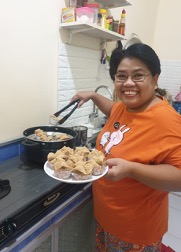 YOHANA
YOHANA
I am proud of my native town Klaten. Apart from its beautiful nature, Klaten is also known as the City of a Thousand Temples. There are about 18 Hindu and Buddhist heritage temples. The most famous one is the Prambanan Temple where the Ramayana Dance is performed monthly when there is full moon. The other temples are equally well preserved and protected by the local government. Klaten is known among Catholics for the two caves, places of Marian pilgrimage, namely Maria Sriningsih and Marganingsih. Marian novenas are often held, and every first Friday the Eucharist is celebrated there. The Maria Asumpta church and the Grand Mosque are close together. The Moslems and Catholics help one another during their respective religious celebrations.
I am the 4th child of five siblings. From my great grandmother to my parents, we formed a big Catholic family. But over time many of my siblings have become Moslem, usually because of marriage. My father taught us in a very strict and disciplined manner. We children should not be lazy to go to church. We should not be late and had to dress neatly. All that has formed us into devout Catholics, and we still apply his teachings to this day.
After finishing high school, I worked at the Ursuline provincialate in Bandung where Sr. Emma is a member of the community.It was there I heard about the Company of St. Ursula and became a member. I have the privilege of meeting Elisa Tarolli a few times. I admire her great zeal and love for the Company. From Sr. Irene I learned the art of cooking, and from Sr. Emma the spirituality of St. Angela and the skill of doing the reading at Mass.
I would have loved to work there all my life, but after 23 years I got sick and I reluctantly resigned from my job. Those had veen very enriching years. I loved the sisters and they loved me. Up to now I am still communicating with some Sisters. I left Bandung and returned to Klaten, my native town. I stayed with my sister and helped her with working in the school canteen. I also did some Pastoral work by joining the choir, doing the readings at Mass, and training young people to read at Mass. With the pandemic the school was closed and so was the canteen. I did not want to be a burden for my sister, so when I was offered a job by the Ursulines in Jakarta, I accepted.
I thought I was already strong. But after some weeks my health was deteriorating and again I had to quit work. My niece in Jakarta asked me to help her with household cores. She lives alone with her husband who is away most of the time for work. And so here I am, trying to serve people in every possible way. I follow Mass on line. There are also many prayer groups, meditations, webinars and Scripture courses on line. I feel a great longing in my heart to come closer to God. I am also very afraid to be contaminated by covid-19. But St. Angela who outlived a pandemic in her time, losing both her parents and a sister, teaches me to trust God: “I firmly believe and trust in God’s goodness that we shall overcome all difficulties, dangers and hardships…” (Prologue of the Rule, 25). Her words give me hope and encouragement.
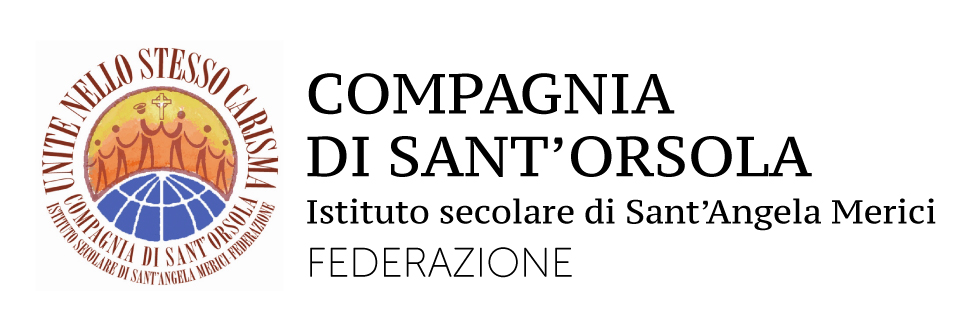
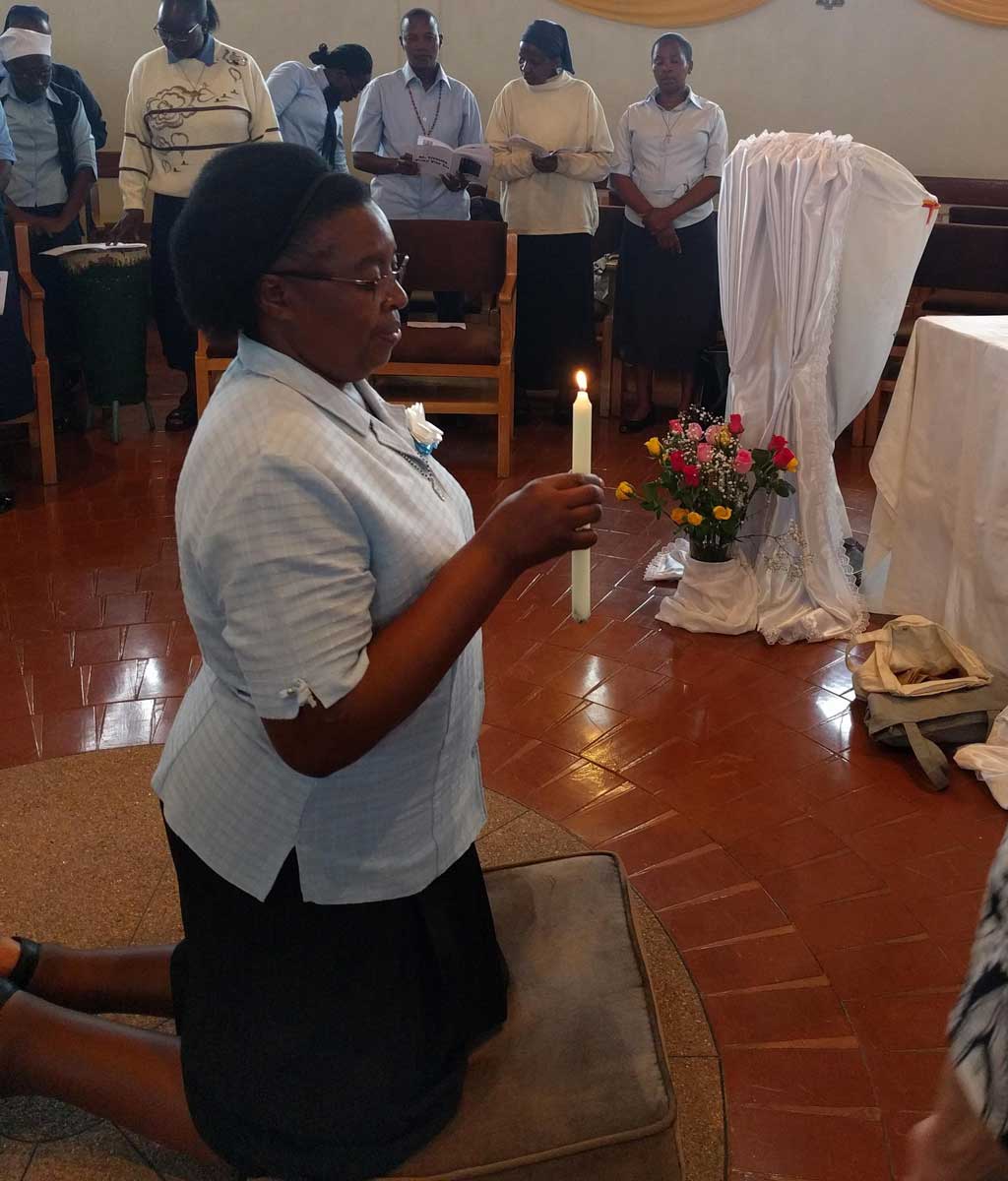 The Group of Kenya took an important step forward on November 29, 2019, when Perpetua made her consecration for life in Nairobi. Perpetua was the first Kenyan in the Company of St. Ursula. In 2011 she contacted the Federation with a request begin this way of life. In 2012 the President (then Maria Rosa Razza) and her Council accepted Perpetua’s application. The President appointed Mary-Cabrini Durkin, a Councilor, to guide her, through twice-monthly Skype conversations and annual visits.
The Group of Kenya took an important step forward on November 29, 2019, when Perpetua made her consecration for life in Nairobi. Perpetua was the first Kenyan in the Company of St. Ursula. In 2011 she contacted the Federation with a request begin this way of life. In 2012 the President (then Maria Rosa Razza) and her Council accepted Perpetua’s application. The President appointed Mary-Cabrini Durkin, a Councilor, to guide her, through twice-monthly Skype conversations and annual visits.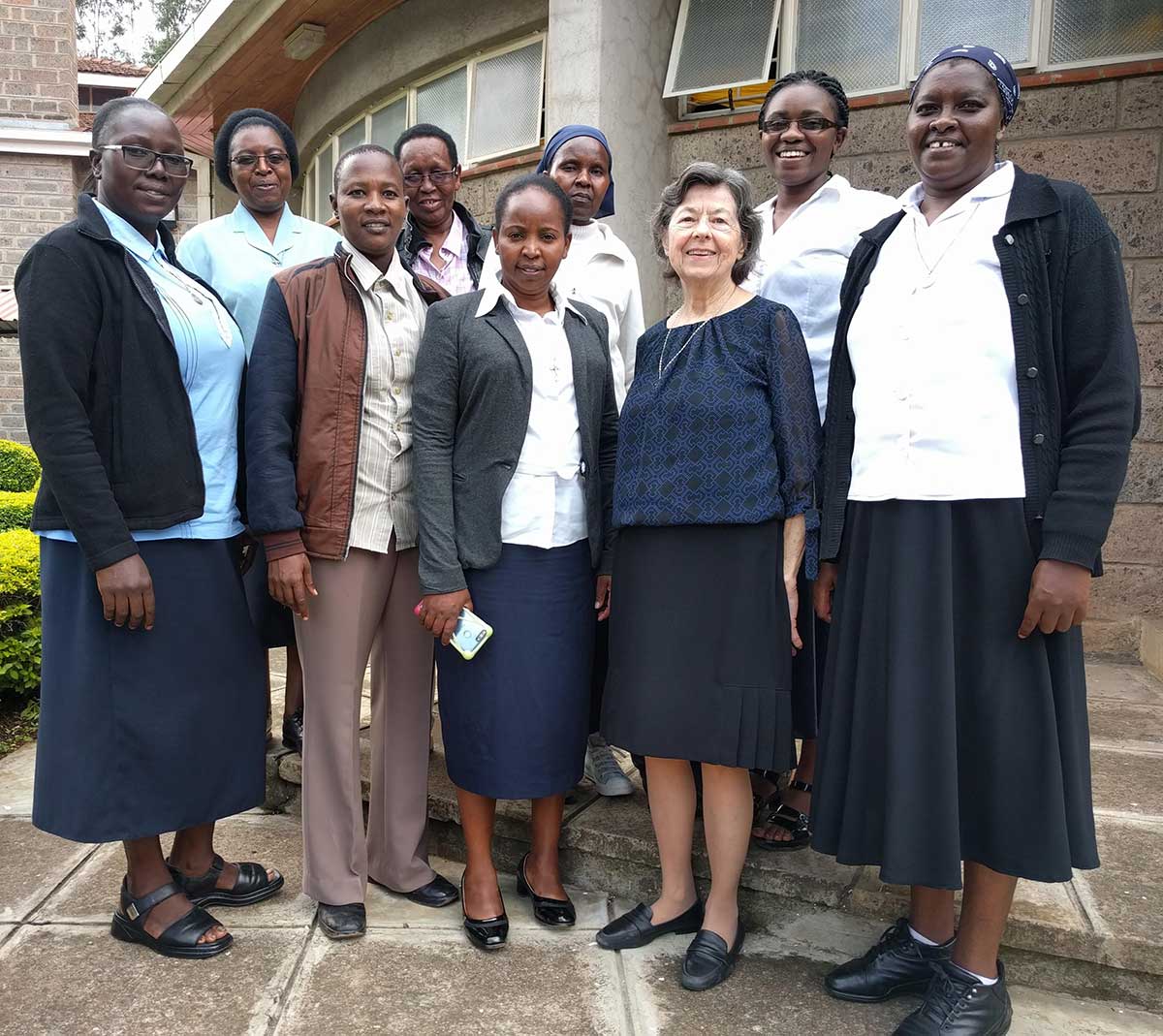
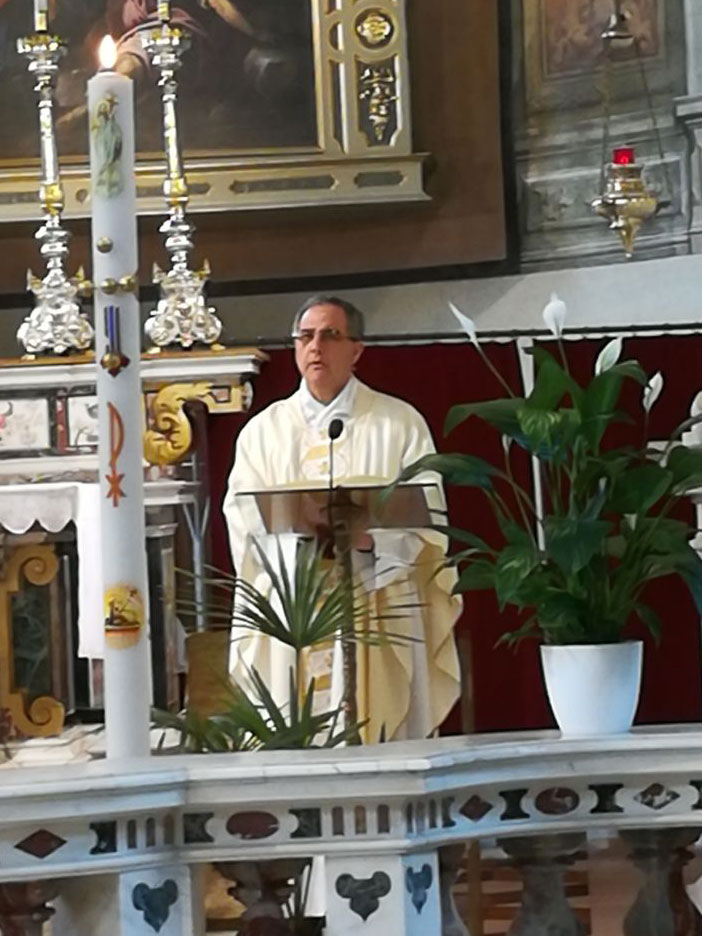
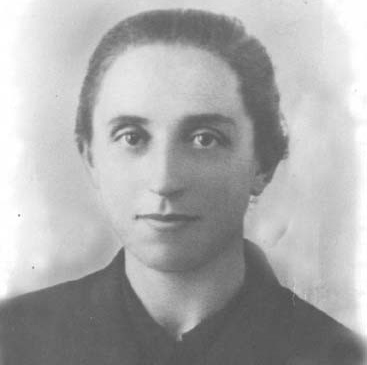 The diocesan process for the beatification of MARIA BORGATO closed recently in Padua. She died in the Ravensbrück concentration camp for women, not far from Berlin. She formed part of a chain of solidarity with Franciscan Father Placido Cortese, also arrested and killed for having sought to put Gospel teaching into practice.
The diocesan process for the beatification of MARIA BORGATO closed recently in Padua. She died in the Ravensbrück concentration camp for women, not far from Berlin. She formed part of a chain of solidarity with Franciscan Father Placido Cortese, also arrested and killed for having sought to put Gospel teaching into practice.

